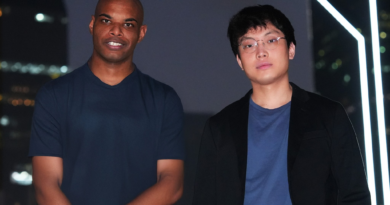Despite all their anti-capitalist talk, Gen Z is addicted to celebrity—They’re more likely to purchase from brands they think are ‘cool’
Although Gen Zers and millennials are generally regarded as anti-capitalist consumers who claim to distance themselves from overconsumption or blind consumerism, there are two things that will stop them in their tracks when making a decision to purchase: celebrities and influencers.
Celebrities and influencers create a “coolness” factor that makes it all but irresistible for these younger generations to follow in the footsteps of their idols. Indeed, 69% of 13- to 39-year-olds say they’re more likely to purchase from brands that they think are cool, according to a report by youth research group YPulse that names the top brands among that cohort.
And coincidentally or not, the list included several brands that were featured in Super Bowl ads this year, including Oreo, NFL, e.l.f., Reese’s, and more. These advertisements offer Gen Zers and millennials a “vote of confidence” they’d want to actually make a purchase, says Brooke Persich, an ex-Google marketer who also helped build Android’s creator and influencer strategy.
“Hype still holds weight as it offers something novel and exciting to try,” Persich, who founded marketing consultancy Onlign Lab, tells Fortune. “Gen Z and millennials regard the celebrities and influencers they like as trustworthy and even relatable and expect a degree of responsible conduct from these individuals when it comes to their brand endorsements and partnerships.”
Are Gen Z and millennials really anti-capitalist?
Nearly half of young adults view capitalism negatively, according to a study by Axios and SurveyMonkey. They blame the capitalist culture of the U.S. for struggles in finding affordable housing, climate change, and health care and higher education costs for their plight. But yet their actions belie their talk, as many give into the hype surrounding celebrity- and influencer-backed brands, which have been hallmarks of American capitalism for over 100 years.
“Sure, Gen Z and millennials can be anti-capitalist, but they still have senses of humor and they still follow personalities and pop culture,” Brian Feit, founding partner of BMF Media, tells Fortune. “And while they are historically the most anti-capitalist generations, that is also a generalization among millions of people who want to be entertained.”
Gen Zers’ emerging love/hate relationship with celebrity and capitalism is not unique to their generation. In many ways, the social media era was exemplified by TikTok for their generation, but before them by Twitter—and even Vine—recalls the great pop artist Andy Warhol’s prediction that everyone would be famous for 15 minutes in the future. And advertising has been leaning into trends in TV comedy toward absurdist and meta-humor going back at least 20 years to shows such as Arrested Development and 30 Rock.
More generally, all of these developments arrive in the context of postmodernist theory, which advocated a new understanding of written and visual media, such as Jacques Derrida’s concept of “deconstruction.” Without going into a graduate seminar, it’s postmodern for brands to make fun of themselves. Consider this 2018 Fortune report on “The Great Wendy’s-Steak-Umm Flame War,” when two fast-food chains went postmodern online and began debating each other, through the fingers of highly paid social media consultants.
Or for another example, look at this year’s Super Bowl advertisement, starring none other than Arrested Development star Michael Cera, riffing on his name’s similarity to the skin cream Cerave. This is a postmodern idea because Cera is winking at the audience on the names’ similarity—of course they are a coincidence. Paradoxically, this kind of meta humor can create the appearance of intimacy and authenticity with a young adult audience because it’s self-referential and winking (if done correctly). The blockbuster success of the self-aware Marvel Studios movies is another example, with Robert Downey Jr. in the Michael Cera role, so to speak.
Gen Zers and millennials just want to be celebrities
Some experts also think Gen Zers and millennials respond to celebrity- and influencer-backed advertising because they fantasize about being celebrities themselves.
Gen Zers and millennials “all want to be celebrities, and that is why they follow and buy celebrity-endorsed products,” Baruch Labunski, founder of digital marketing firm Rank Secure, tells Fortune. “Many of them have YouTube, Instagram, or TikTok channels and post regularly trying to become an influencer or some type of micro-celebrity. They copy what real celebrities have and do to mirror that lifestyle or build their brand image.”
But it wasn’t just teens and twentysomethings that reeled in Gen Z and millennial viewers during the Super Bowl. In fact, there was a broad age range among the most celebrity-packed ads at the Super Bowl this year, Feit says. Dunkin’ successfully achieved this in its commercial that included Ben Affleck, Tom Brady, Matt Damon, and several others.
“You’ll notice Dunkin’ opened with 25-year-old Jack Harlow versus 35-year-old Michael Cera with Cerave,” Feit says. “The most important part of this year’s campaigns [was] the irreverence of the celeb appearances, kind of breaking the fourth wall in acknowledging the absurdity.”
The flip side of that is Gen Zers and millennials are also more likely to steer away from brands that don’t match their ethos or appear insincere with their endorsements. And it means that bad ads can have even more of a resounding impact than good ones.
“Gen-Z and millennials have become more conscious about how they consume and who from, and are inclined to pull away from brands, celebrities and influencers who don’t represent their values,” Persich says. “Bad or poorly perceived endorsements are subject to poor PR and affect brand image now more than ever. With so many choices on the market, Gen Z and millennials will simply just go elsewhere.”
E.l.f. Beauty, which has become a beloved mainstay makeup brand for younger generations, also ran an ad during the Super Bowl chock full of celebrities and influencers including members of the cast of Suits, Ronald from viral series Jury Duty, pop star Meghan Trainor, and several TikTok influencers. Another Gen Z hit was with Cardi B’s appearance in beauty brand NYX’s commercial.
“When the celebrity pairing is on point, it’s always alluring,” Feit says. “Also during the Super Bowl, Cardi B, who largely popularized the duck lips Insta-famous pose, will likely jump-start sales on NYX’s Duck Plump Lip Gloss. Not to mention, she referenced her iconic ‘that’s suspicious’ viral TikTok, which both generations are highly aware of.”



